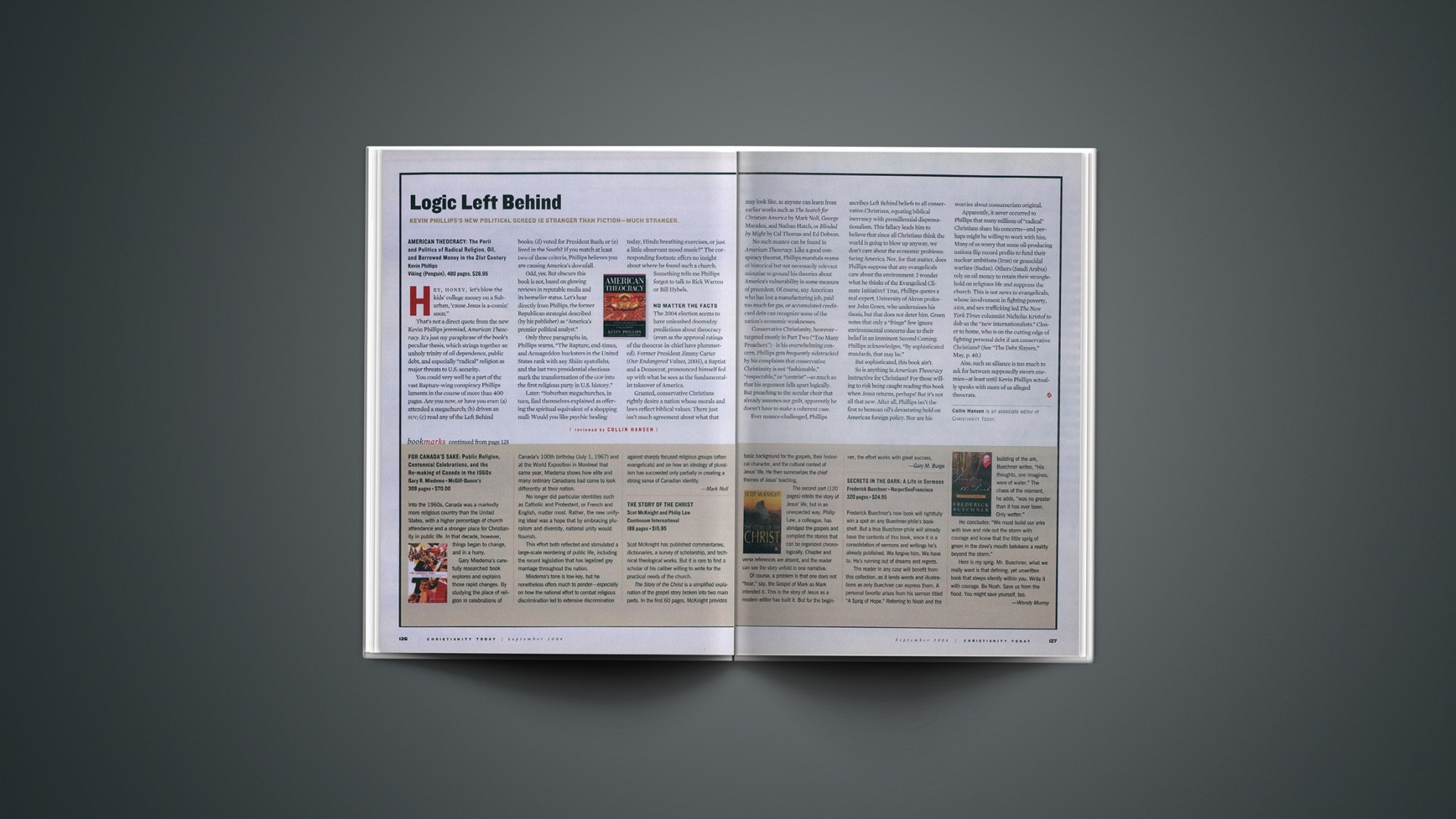Into the 1960s, Canada was a markedly more religious country than the United States, with a higher percentage of church attendance and a stronger place for Christianity in public life. In that decade, however, things began to change, and in a hurry.
 For Canada’s Sake:Public Religion,Centennial Celebrations,and the Re-makingof Canadain the 1960sby Gary R. MiedemaMcGill-Queen’s308 pp.; $70.00 |
Gary Miedema’s carefully researched book explores and explains those rapid changes. By studying the place of religion in celebrations of Canada’s 100th birthday (July 1, 1967) and at the World Exposition in Montreal that same year, Miedema shows how elite and many ordinary Canadians had come to look differently at their nation.
No longer did particular identities such as Catholic and Protestant, or French and English, matter most. Rather, the new unifying ideal was a hope that by embracing pluralism and diversity, national unity would flourish.
This effort both reflected and stimulated a large-scale reordering of public life, including the recent legislation that has legalized gay marriage throughout the nation.
Miedema’s tone is low-key, but he nonetheless offers much to ponder—especially on how the national effort to combat religious discrimination led to extensive discrimination against sharply focused religious groups (often evangelicals) and on how an ideology of pluralism has succeeded only partially in creating a strong sense of Canadian identity.
Copyright © 2006 Christianity Today. Click for reprint information.
Related Elsewhere:
For Canada’s Sake is available from Amazon.com and other book retailers.
More information is available from McGill-Queen’s University Press.
Christianity Today covered recent church growth in Canada.
News and information about evangelicals in Canada is available from the Evangelical Fellowship of Canada.
Our full coverage page has past CT articles about Canada.










